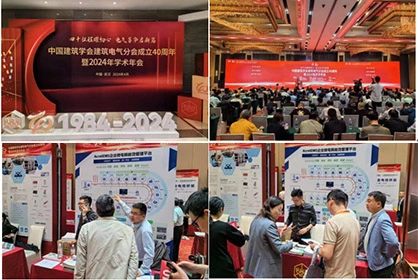Ⅰ. AC current sensors classified according to the induction principle
1. Electromagnetic current transformer
Electromagnetic current transformer is a special transformer, referred to as current transformer. Under normal use conditions, the secondary current is substantially proportional to the primary current, and the phase difference is close to zero when the connection method is correct. Secondary windings are used for measuring instruments, meters, relays and other similar electrical appliances.
2. Hall current sensor
Hall current sensors are based on the Hall effect principle, including open-loop Hall current sensors and closed-loop Hall current sensors. Closed-loop Hall current sensors are also called zero-flux current sensors or magnetic balance current sensors.
3. Rogowski coil
Rogowski coil, also known as Rogowski coil, is an AC current transducer. It is a hollow annular coil. It has two types: flexible and rigid. It can be directly placed on the conductor to be measured to measure AC current. Rogowski coils are suitable for the measurement of AC current in a wide frequency range. There are no special requirements for conductor size, and they have fast instantaneous response capabilities. They are widely used in current measurement devices where traditional current measurement devices such as current transformers cannot be used. measurements, especially high-frequency, high-current measurements.
Ⅱ. AC current sensors classified by output signal
1. Analog output AC current sensor
Most current sensors in engineering applications are analog output AC current sensors. The advantage of the analog output current sensor is that the interface is simple, and the secondary instrument is easy to standardize.
2. Digital output AC current sensor
It is more reasonable to convert the measured parameters into digital parameters because the analog output requirements for traditional analog output transmitters are based on limited conventional technology, not based on the actual needs of the equipment using the measured parameter information. The digital output AC current sensor can use optical fiber transmission, and the digital output AC current sensor with optical fiber transmission can completely avoid the loss and interference of the transmission link, and is suitable for high-precision measurement in complex electromagnetic environments.
Ⅲ. AC current sensors classified by signal frequency
1. Power frequency current sensor
Due to the nonlinear characteristics of the iron core, the electromagnetic current transformer is mainly suitable for the current measurement of the rated frequency. When the frequency is too high, the output current will be distorted, and when the frequency is too low, the transformer may be saturated and damaged. It is generally suitable for power frequency current measurement with small harmonic content.
2. Frequency conversion current sensor
Electromagnetic current transformers are mainly used for the measurement and measurement of power frequency current and electric energy. Hall current sensors are mainly used for industrial control and independent voltage and current measurement. Therefore, the angular difference index, which is closely related to the accuracy of power measurement, is generally not nominal. Therefore, it is not suitable for high-precision power measurement.
With the development of frequency conversion technology and energy saving technology, it is necessary to accurately evaluate the energy efficiency of various frequency conversion speed control devices, while electromagnetic voltage and current transformers generally can only accurately measure the power of power frequency sinusoidal circuits. The new frequency conversion power AC current transducer is a combined voltage and current sensor. This type of sensor directly outputs digital quantities and uses optical fiber for transmission, which can effectively avoid loss and interference in the transmission link. And it has small ratio difference and angular difference in a wide frequency range, and can accurately measure various types of variable frequency electricity (voltage, current, power and harmonics, etc.). It is suitable for product inspection and energy efficiency evaluation of hybrid electric vehicles, electric vehicles, solar power generation, wind power generation, inverters, inverter motors and fuel cells.
 English
English












